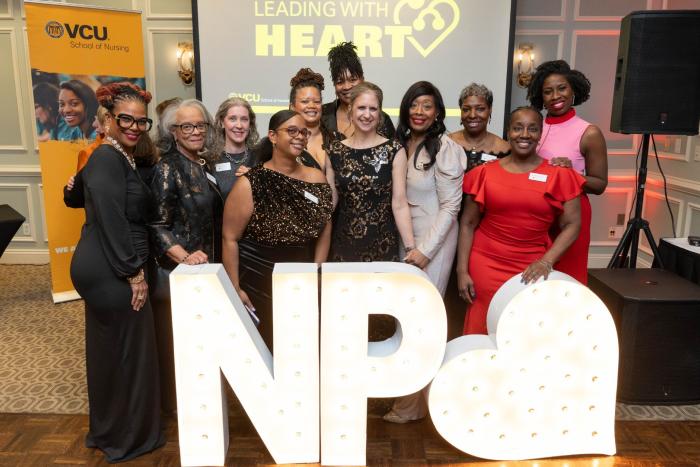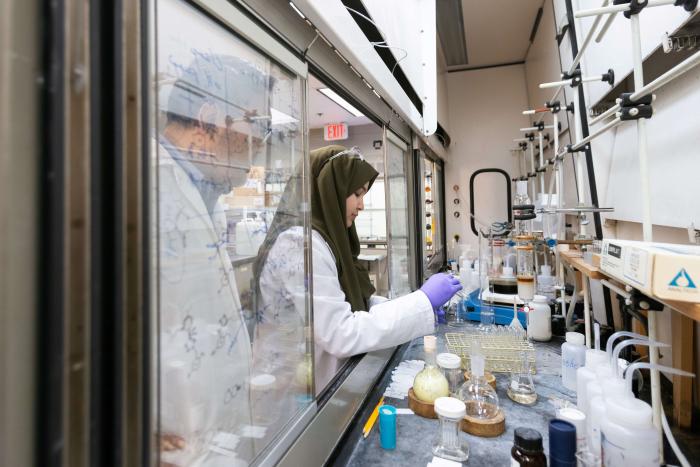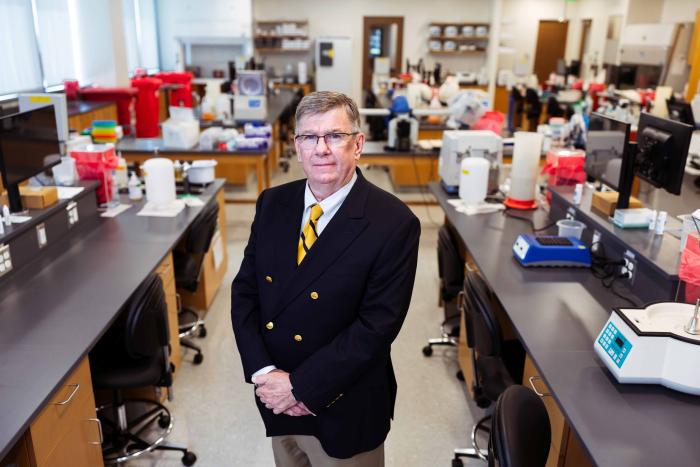At 75, VCU Health Administration Program is Just Getting Started
Less than 1%.
Those are the odds, as David Osorio sees them, that his foster care upbringing would have led him to any grad school, anywhere.
That he would be accepted into one of the nation’s top health care administration graduate programs — and do so with a scholarship — was an even smaller probability.
Call it impossible.
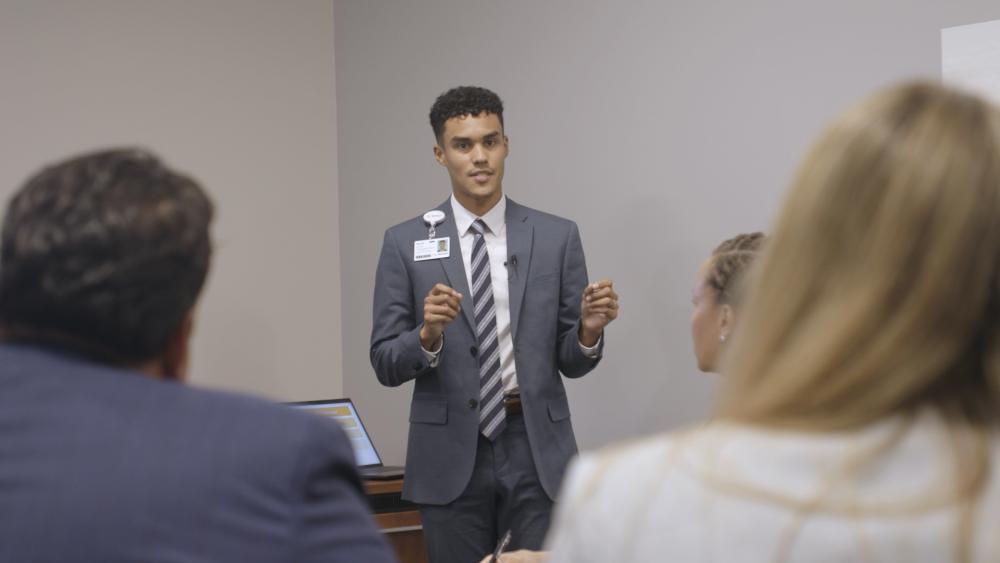
Yet Osorio proudly joined Sentara Health in Virginia Beach earlier this summer as an administrative fellow who will spend this next year ingratiating himself into care delivery models that reach underserved populations.
Osorio’s role at Sentara is part of a third-year residency opportunity built into the VCU College of Health Professions’ Master of Health Administration program. He’ll see healthcare from the inside out, carving a career for himself in an industry that, ironically, was inaccessible to many in the communities where he grew up.
These alumni truly care, and they really want to invest in the next generation of health care leaders.
David Osorio
But Osorio won’t be alone. He is now part of a vast, national network of movers and shakers made up of people who are willing to help — top health care executives who share a common thread: VCU played a role in their professional trajectory.
VCU’s health administration program celebrates 75 years in 2024.
Ranked third nationally by U.S. News & World Report, it offers pathways to dynamic careers as hospital, clinic, for-profit and nonprofit health care and finance managers, operational officers, Fortune 500 executives, policy experts, consultants and more through four advanced degree programs and two certificate programs.
VCU alumni lead large, complex health systems. They shape federal health care policy. They run hospitals. They impact quality and safety in health care systems globally, from dense, sprawling cities to remote, rural communities.
They leave a mark.
“VCU has always had an incredible reputation and it’s one that’s endured for 75 years because of the extraordinary investment of time and resources from so many of our esteemed alumni and faculty,” said Paula Song, Ph.D., the Richard M. Bracken Chair and Professor of Health Administration. “Healthcare is a centerpiece of every community, and our graduates make an impact locally, nationally and around the world.”
‘Alumni Truly Care’
That national network of VCU alumni in which Osorio now finds himself was what surprised him the most about the program.
Coming to VCU, he expected to be challenged. He said he sought out health care administration as a career because it was competitive, but also fundamentally about teamwork.
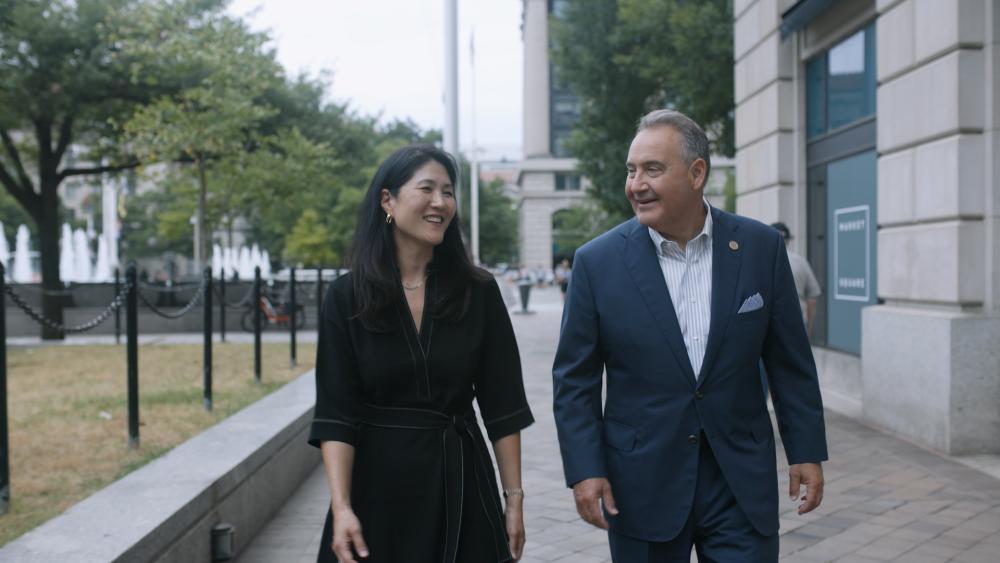
He did not, however, expect the likes of Jon Perlin, M.D., Ph.D., M.S.H.A., president and CEO of The Joint Commission Enterprise, to send him messages and offer time to chat. The Joint Commission is the nation’s oldest and largest standards-setting and accrediting health care body, accrediting tens of thousands of organizations both domestically and internationally. Dr. Perlin, a 1997 VCU health administration alum, took the helm in 2022 as its seventh president and CEO.
“These are busy, busy executives who drop what they’re doing to speak to me,” Osorio said. “Dr. Perlin does not have a lot of time to spare but I’ve met with him several times.”
“These alumni truly care, and they really want to invest in the next generation of health care leaders,” he said. “There are people investing in me right now, with time and with financial support, and when I get to that point in my career, there’s absolutely no question that I’m going to pay that back.”
Impacting students’ lives is something Roberta Tinch, president of Inova Mount Vernon Hospital and vice president and administrator of musculoskeletal services, takes to heart.
Navigating the health care industry can be overwhelming. Thousands of hospitals. Myriad clinics. Insurance companies. Quality assessment. Nonprofit and for-profit health systems.
Where VCU excels, Tinch said, is fostering relationships that make that looming industry feel very small.
“VCU creates an environment of camaraderie — it speaks highly of the selection process of pulling together like-minded individuals who are focused on making a difference in health care,” said Tinch, a 2009 alum.
“When you’re in the same room with people who are focused on the same goal, you feed off that energy,” she said. Those relationships don’t end at graduation.
In fact, they only grow.
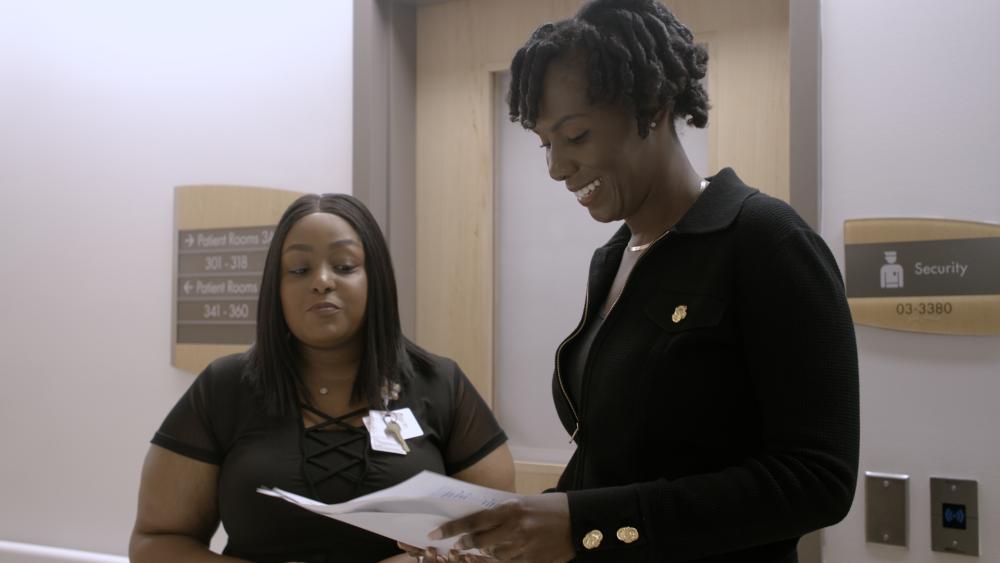
Tinch leans on those bonds even now, reaching out to members of her class when she has questions about market trends, recruitment strategies, best practices, provider perspectives, patient perspectives, or simply to bounce ideas off peers who knows what she’s going through — or maybe they don’t and can offer a fresh perspective.
Established relationships open doors, she said.
So does VCU’s reputation.
Tinch recalls mentoring a VCU student in recent years and helping her get an interview for a fellowship with a health system in another state. Tinch didn’t know people there, but she reached out on behalf of the student to make an introduction.
“This is where the VCU name holds weight,” Tinch said. In that instance, “I reached out to someone I didn’t know, and they had never met me or the student, but I was able to present myself with the mantle of VCU.”
Tinch mentored the student through her interview preparation. Ultimately, the student was offered a fellowship.
“It was a proud moment for me, to be able to have a hand in her preparation and ultimately getting her in the fellowship of her choice,” Tinch said. “As VCU alumni, we’re willing to open doors for each other, create conversations and create pathways that allow students to show their skills and land jobs.”
She added: “I love seeing our students win.”
Students blossom with strong mentors.
Preceptors benefit, too, said Bill Downey, former CEO of Riverside Health System and current executive vice chairman, and 1985 health administration alum.
“It’s a great pipeline of talent for us,” Downey said about the VCU’s residency program, something he said has been a national standout for decades.
“In the 1980s, when I looked around Virginia, most of the hospital administrators were graduates of VCU,” he said. While other health administration graduate programs had residencies, “VCU was the best, by far, and it has continued to be a great asset to the program.”
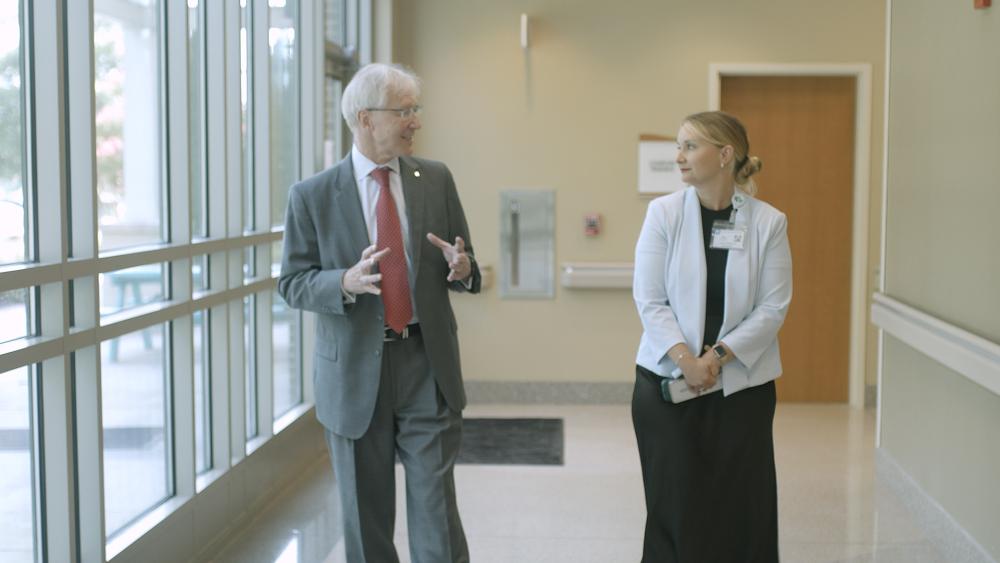
VCU remains a leader for health care administration because it pushes the industry rather than adapting to it. For example, to address demand in the industry at the undergraduate level, the department recently added a bachelor’s degree program to its catalog. This year’s enrollment tops 250 students.
“Students get exposed early to things they wouldn’t otherwise be exposed to in their careers until maybe a few years down the road,” Downey said, noting that Riverside has hired VCU graduates after working with them during their residencies.
“They show us their skills, then we find the right place to help them drive the organization forward,” he said.
Paying it Forward
Health administration alumni spend countless hours as mentors and preceptors.
Experience is priceless.
We all have our why and there are so many elements within VCU where we can give in specific ways that keep our program at the top of its class.
Roberta Tinch
But many within the robust alumni network also make financial gifts to support scholarships and other initiatives that directly impact students.
For the 2024-25 academic year, 50 seats with the masters’ and doctorate programs were filled from among 111 applicants and nearly all those students will receive some sort of scholarship aid.
Inova’s Tinch remembers the moment she realized the impact of financial gifts.
She attended an American College of Healthcare Executives conference in 2023 with second-year students. They were happy to be there, she said, and excited to interact with peers and health care executives.
“Graduate students are trying to figure out how to pay for school and pay off loans but also be forward facing about where they want to take their careers,” Tinch said. “Sometimes the financial burden of traveling to conferences is just one more concern for students who just trying to make their way in this world.”
“But I was so encouraged by the chatter around me,” she said. “We all have our why and there are so many elements within VCU where we can give in specific ways that keep our program at the top of its class.”
“My giving is to show students that I believe in them, that I believe in their potential, and I believe in the impact they’re going to make in the industry,” Tinch said. “If they’re willing to take the time to show up, then I’m happy to give money to help them get there.”
VCU’s health administration department is unique because of what it doesn’t have, Dr. Perlin said, namely a homogenous student body.
Students bring varied backgrounds to the program. They are pharmacists or nurses or mid-career physicians who, like him, want to transition from clinical to administrative positions.
Or they’re entirely new to health care because they come from legal and business backgrounds.
“It’s a wonderfully diverse cauldron of backgrounds that, as much as the academic experience, really added to the socialization and preparation for the real world,” Dr. Perlin said. “All of these people working together in the health administration program meant that some of the background was less mysterious when we actually interacted with those backgrounds in the real world.”
“It creates a context that’s unbelievably rich for students, faculty and everyone in between.”
Dr. Perlin credits VCU’s faculty, many of them alumni with a breadth of experience, who work to transfer knowledge in an environment conducive to learning.
“Within health administration, there isn’t a lot of ceremony — it’s not a place that’s overly formal,” he said. “Faculty work to develop warm and effective working relationships so everyone learns together.”
It’s a necessity for today and future health care leaders.
“When the general public thinks about health care, health administrators and those people behind the scenes may not be the first ones that come to mind,” Dr. Perlin said. “But without really competent leadership that build an environment conducive to quality care, those hospitals, clinics, health systems don’t exist.”
Osorio, who said he’s always been an athlete and is currently training for a marathon in Hawaii later this year, knows health care can make or break a community.
He’s ready to make his mark. He’s leaning on 75 years of experience to do it.
“Mentors have opened doors for me and I don’t think people understand the ripple effect from those investments,” Osorio said. “They don’t just help that one person that one time, they help every single other person that person touches.”
If you would like to learn about supporting the VCU College of Health Professions and its Department of Health Administration, please contact T. Greg Prince, Ed.D., at 804-828-7247 or tgprince@vcu.edu.
